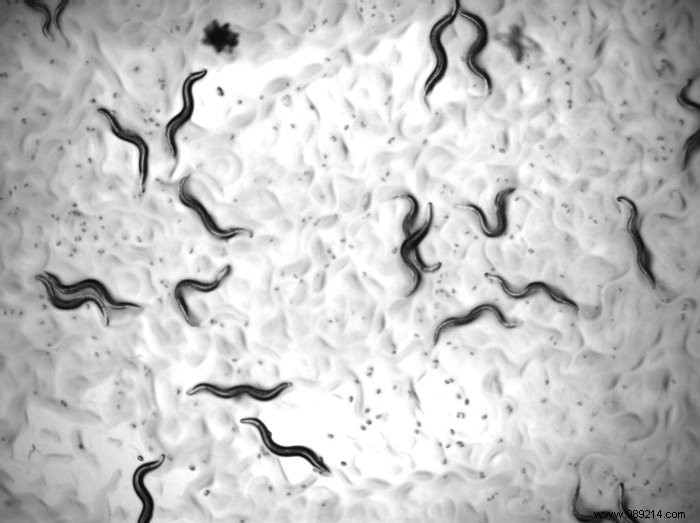Researchers have succeeded in extending the lifespan of small roundworms by 500%. In humans, this is equivalent to living for four or five centuries.
Live longer and healthier, we say yes. But how to do it ? To study the mechanisms of aging, researchers usually focus on C worms. elegant . Indeed, these small organisms share many cellular pathways with humans . Their lifespan is also very short – three or four weeks at most. Which means that any changes in this lifetime can be easily measured.
The object of this study was to genetically modify two "cellular pathways" - the biological signaling systems that cells use to communicate with each other. These two paths – called IIS and TOR – are also present in humans. This is why they have already been studied as part of research on aging, but separately.
During these studies modifying the IIS pathway increased the lifespan of small worms by 100%, while modifying the TOR pathway increased their lifespan. 30% life. By combining the two approaches, and by simple mathematical addition, the researchers then expected to lead to a increase in their lifespan of 130% .
So they were very surprised to find that the longevity of these little organisms had actually been extended by 500% !

"The synergistic extension is really amazing , said Jarod Rollins, of the biological laboratory of the island of Desert Mountains (United States) and lead author of the study. This study tells us that to develop anti-aging treatments most effective, we need to consider longevity networks rather than individual pathways .
The researcher points out that this discovery could indeed explain why we have not yet found any specific gene capable of extending our lifespan. This new combination is one avenue to follow (drugs are already in development), but there could be many more. That's why we need to keep researching.
“Despite the discovery in C. elegans of cellular pathways that regulate aging, it is not known how these pathways interact , recalls Hermann Haller, co-author of the study. By helping to characterize these interactions, our scientists are paving the way for much-needed therapies to increase the length and quality of life of a rapidly aging population .
Source
Related articles: